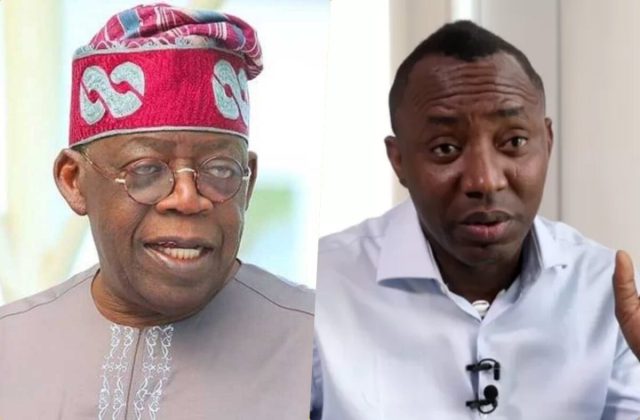Two prominent rights groups, Socio-Economic Rights and Accountability Project (SERAP) and Amnesty International, have urged President Bola Tinubu to withdraw charges filed against activist Omoyele Sowore as well as the owners of X (formerly Twitter) and Facebook over posts deemed critical of his administration.
In a joint letter dated September 20 and signed by SERAP’s deputy director, Kolawole Oluwadare, and Amnesty International Nigeria’s director, Isa Sanusi, the groups called on Tinubu to direct Attorney-General of the Federation Lateef Fagbemi to discontinue the suits.
They also demanded that security agencies, particularly the Department of State Services (DSS), stop what they described as “the misuse of judicial processes to silence public criticism.”
“The weaponization of the justice system to crack down on peaceful dissent is entirely inconsistent with the Nigerian Constitution and the country’s international human rights obligations,” the letter read.
The groups argued that the lawsuits “generate a chilling effect that inhibits the enjoyment of human rights and circulation of ideas and information.”
According to court filings, Sowore, publisher of Sahara Reporters, was charged alongside the social media companies at the Federal High Court in Abuja on September 16. Two of the counts were brought under the Cybercrimes (Prohibition, Prevention, etc.) (Amendment) Act 2024, while three others—criminal defamation, causing public fear, and disturbance—were based on the Criminal Code Act. The charges followed Sowore’s alleged refusal to delete posts critical of President Tinubu.
The groups reminded the President of his own public statements promising tolerance for dissent. They cited his June 12 Democracy Day address to the National Assembly, where he said, “No one should bear the brunt of injustice for merely writing a bad report about me or calling me names. Democracy requires a fair degree of tolerance for harsh words and stinging insults. Call me names, call me whatever you will, and I will still call upon democracy to defend your right to do so.”
SERAP and Amnesty also noted that the ECOWAS Court of Justice in March 2022 had barred Nigeria from using Section 24 of the Cybercrime Act to prosecute individuals for online criticism of public officials, describing the provision as “arbitrary, vague and repressive.”
Although the law was amended in 2024, they said its new provisions still “fail to provide sufficient safeguards against misuse.”
The rights groups urged Tinubu to prepare anti-SLAPP (Strategic Lawsuit Against Public Participation) legislation to protect citizens from what they described as “the weaponisation of the justice system.” They warned that failure to act within seven days could compel them to seek redress before the ECOWAS Court.
“The use of SLAPP and criminal defamation lawsuits is incompatible with the fundamental principles of a democratic society, to which Nigeria aspires,” the letter continued. “Politicians and other public officials and agencies should tolerate a high degree of criticism due to their public position in democratic societies.”
The DSS has faced similar criticism in recent months for filing lawsuits against prominent figures, including a May 2025 case against Professor Pat Utomi for allegedly attempting to set up a “shadow government.” Rights groups argue that such cases show a pattern of harassment aimed at silencing dissent.







